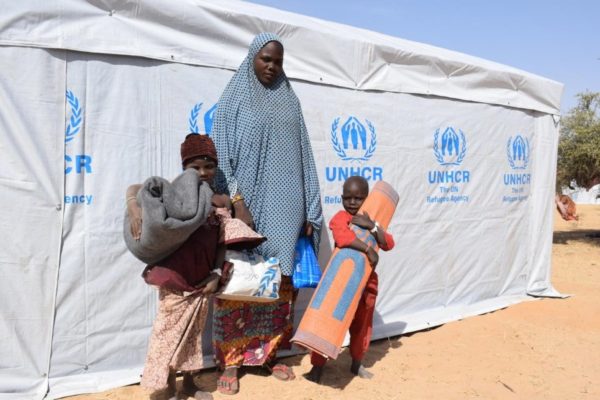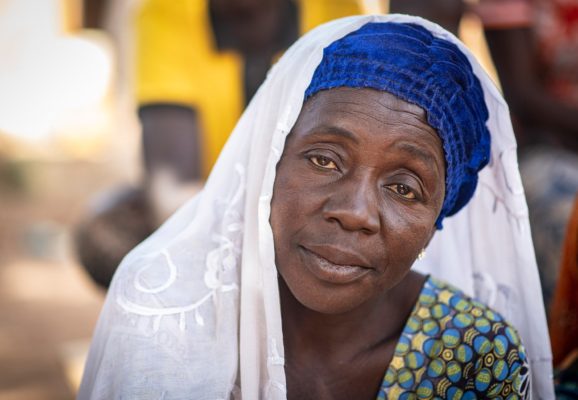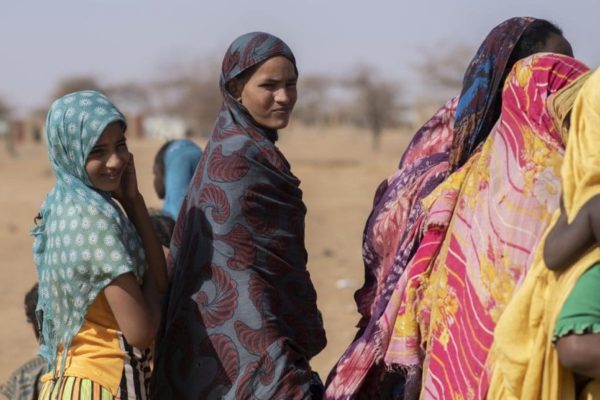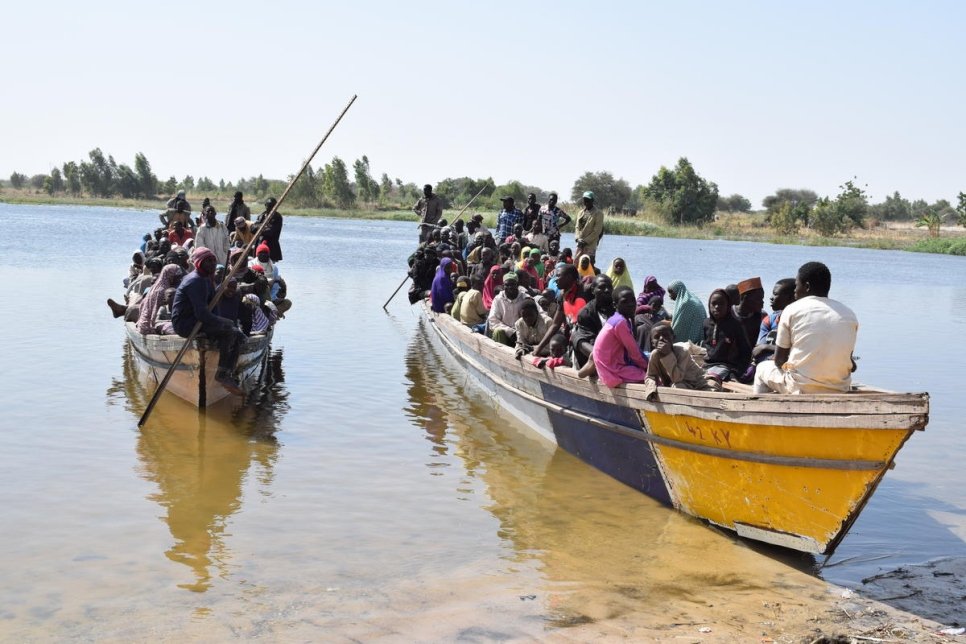
Refugees packed into motorized canoes arrive in Ngouboua, Chad after fleeing previous violence in the Lake Chad and Sahel area. © UNHCR/Aristophane Ngargoune
‘I want to go home, but I fear every day,’ says displaced farmer from Mali-Niger border.
NIAMEY, Niger – UNHCR, the UN Refugee Agency, is calling for greater support for a fresh wave of people forced to flee for their lives and seek safety as a result of renewed conflict in West Africa’s turbulent Sahel and Lake Chad region.
In a statement released this week, UNHCR urged all sides to give priority to protecting civilians caught up in military action by security forces against armed groups in the area, now the cockpit of one of the world’s largest displacement crises.
Almaimoune Mohammed, a 59-year-old farmer from Niger, said he fled this earlier month (April) with his children after an armed group forcibly attempted to recruit young villagers into its ranks.
“I fled and left everything behind.”
“They gathered all the young men from the village and started beating up those who did not want to join them, two youngsters were beaten up so badly they died,” he told UNHCR.
“After they left, I fled and left everything behind: all my equipment and seedlings, my land, some sheep, a few goats and a camel. Almost all the other villagers left too.”
Similar events have been reported across the area since March 29 when security forces from Niger, Chad, Nigeria, Cameroon launched a crackdown on armed groups responsible for attacks on both members of the military and civilians.
UNHCR is insisting that the safety of the displaced population and hosts “must be the priority for all sides” involved in the conflict.
Aissatou Ndiaye, Deputy Director for UNHCR’s Bureau for West and Central Africa, declared: “Too many civilians in the Sahel and Lake Chad Basin have already paid a high price and should not be made to suffer more.”
Thousands of people are now fleeing their homes and villages on a daily basis. This comes on top of thousands of others who have fled previous outbreaks of violence and created one of Africa’s biggest humanitarian challenges.
BREAKING: UNHCR calls on warring parties to protect civilians in Sahel+Lake Chad regions
Increased fighting is putting lives at risk!
Thousands are being forced to flee their homes every day
Innocent civilians should not have to pay the price of warhttps://t.co/Q1HdouARLa
— Charlie Yaxley (@yaxle) April 23, 2020
“Attacks and counter-attacks are constantly pushing populations living in the border areas into deeper misery and risk annihilating any advances in building their resilience,” added Ndiaye.
Aissa Dangui, 50, who fled from Tahoua with her family during unrest in February, said: “With my husband and children, we left our village after an attack on a nearby military base… I hurt my foot on the way, my husband and children had to carry me.”
Many of the displaced people want to return, but fear more violence. “I would like to return to my village, my animals, my fields but I am too scared,” added Almaimoune whose village of Tiloa lies in the border area near Mali.
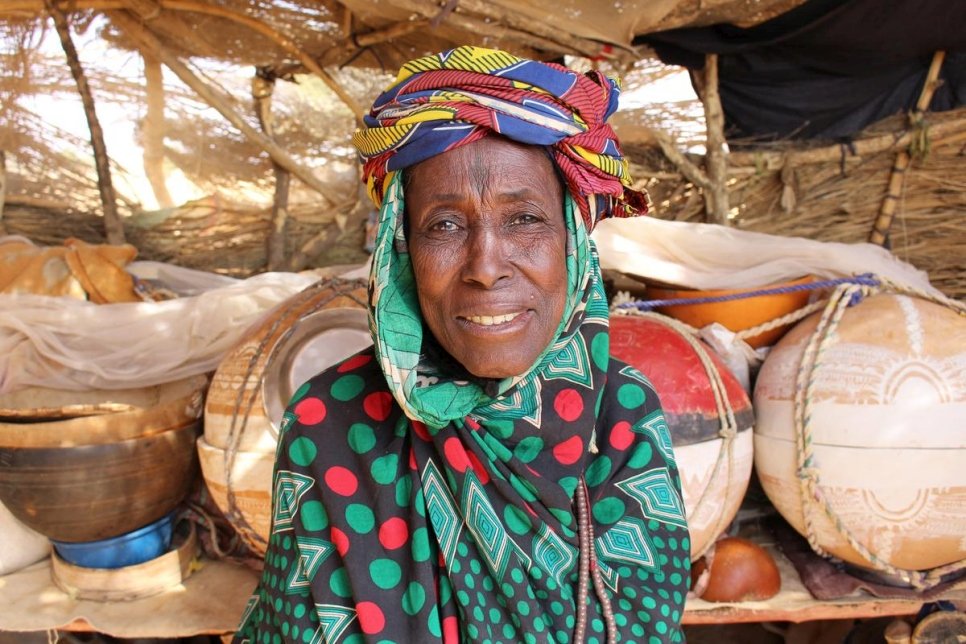
“We left our village because several people feared for their lives. I fell and hurt my foot. My husband and children carried me,” explains Aissa Dangui, a 50-year-old woman from the Niger-Mali border area. © UNHCR/Boubacar Younoussa Siddo
Nearly 50,000 people, including thousands of women, children and the elderly, have been displaced in the region this year, including 25,000 when the Chadian army launched operation ‘Wrath of Boma’ on the shores of Lake Chad, at the end of March with support from other countries’ military.
Chadian authorities declared the departments of Fouli and Kaya an effective war zone. In addition, more than 4,000 people were displaced by clashes earlier this month in Niger’s Tillaberi region while hundreds have crossed borders to seek safety in parts of Mali, themselves already insecure.
Another 6,000 people have also fled Niger to Mali joining at least 10,000 Malians displaced inside their own country by the unrest which has swept the entire Sahel region since January 2020.
In Niger, UNHCR and partners have recorded 191 incidents with 549 victims in the first three months of 2020 in localities within 50 kilometres of the borders. The humanitarian situation is extremely dire with limited access. Some 3.8 million are internally displaced across both regions and 270,000 have fled to neighbouring countries as refugees.
Originally published by UNHCR on 24 April 2020



